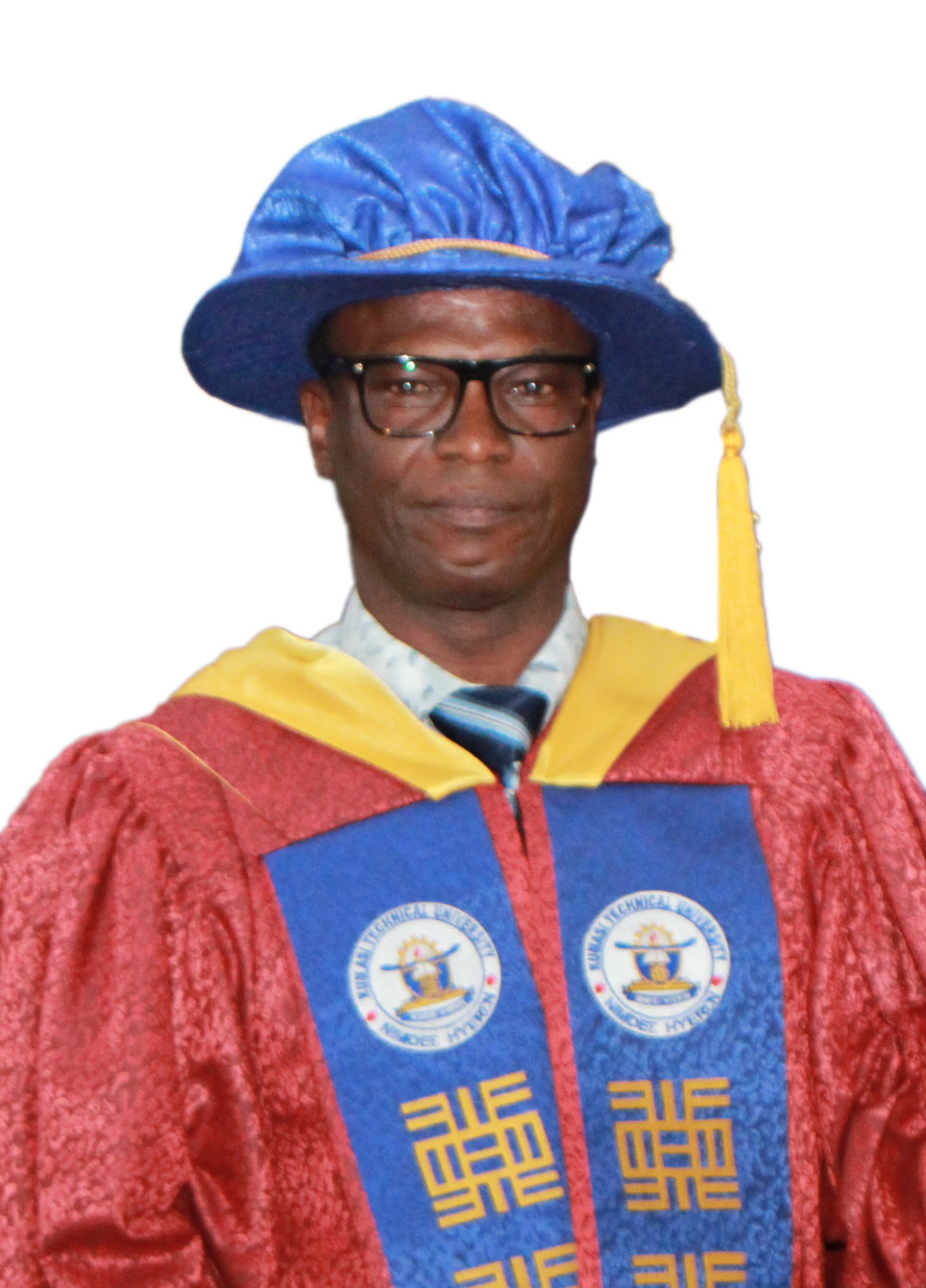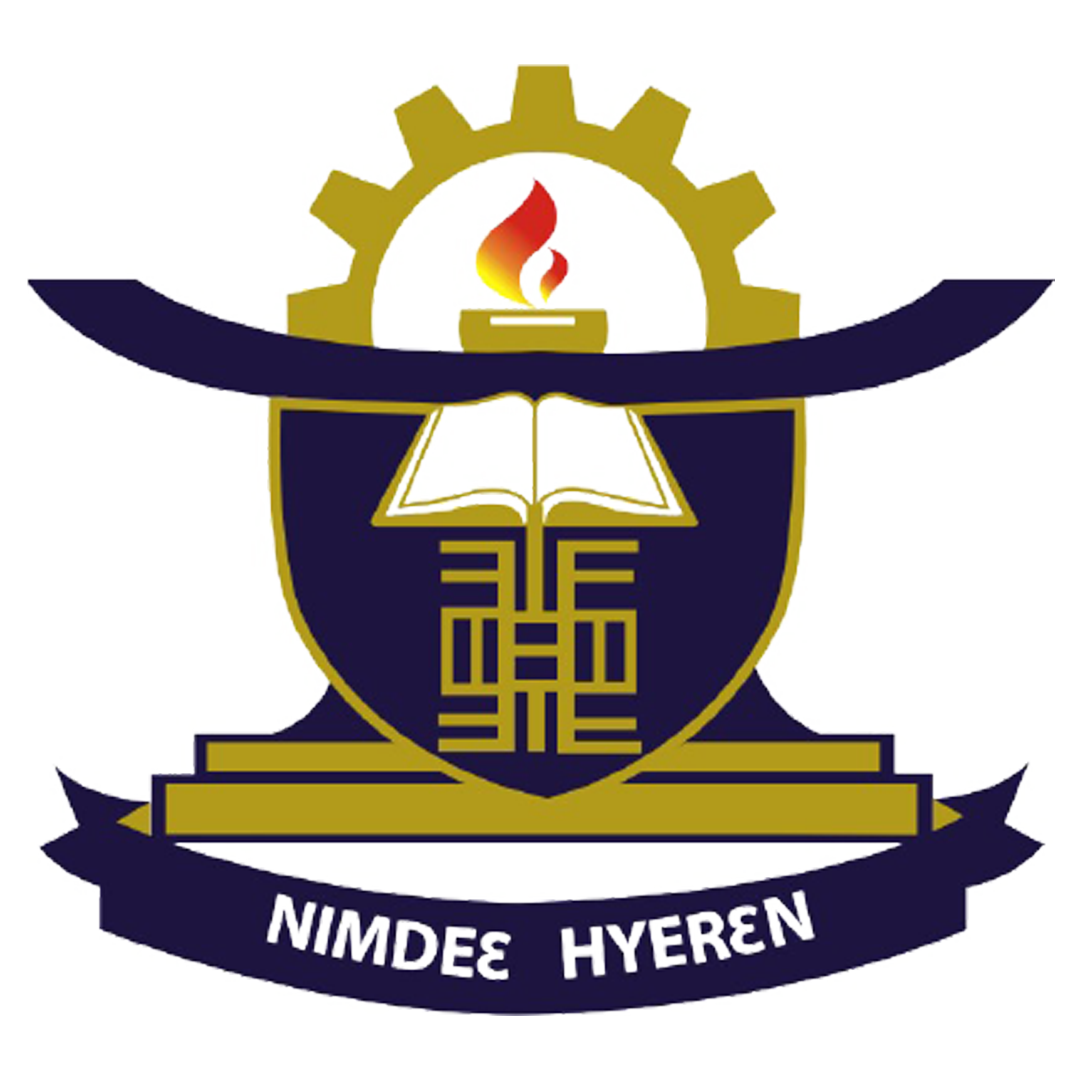
Designation
Staff Grade
Department
Faculty
Website
Profile Menu
- Brief Biography
- Education
- Professional Membership
- Research Interests
- Teaching Areas
- Experience
- Conferences Attended
- Publications
Roland is a down-to-earth individual with quality education in the sciences and engineering, focused on environmental engineering (sanitation option) at the PhD level, and Irrigation Engineering at the BSc and MSc levels. His multidisciplinary PhD thesis entitled “Low-cost sanitation in peri-urban Ghana” combined users’ needs and preferences for sanitation facilities, experts’ views, and relevant literature with sanitation system costing concepts and principles to develop a generic sanitation planning framework for sanitation system selection, while accounting for population density effects on cost for the most cost-effective sanitation system solution. With about twenty (20) years teaching experience in Kumasi Technical University, he has accumulated teaching, learning and administrative experiences, and doubles as an adjunct lecturer with Ghana Technology University College (GTUC) since 2014.
- PhD in Environmental Engineering (sanitation option), University of Leeds, Leeds (United Kingdom)
- MSc (Irrigation Engineering), Russian Peoples’ Friendship University, Moscow (Russia)
- BSc (Civil Engineering), Patrice Lumumba Peoples’ Friendship University, Moscow (Russia)
Promotion of sustainable low-cost sanitation systems for low-income densely-populated peri-urban communities;
Knowledge, attitudes and practices (KAP) of sanitation;
Curricula development at the HND/Diploma, BTech, MTech and DTech levels; and
Greywater management and use.
As Head of Department (HOD) of Civil Engineering from 1998 to 2004, 2014 – 2015, and 2019 – 2021, I was responsible for the smooth, effective and efficient management of the department. The specific duties as HOD included, but not limited to, the following: leadership provision and teaching programmes organization, maintenance of acceptable standards of teaching, provision for the assessment (including examinations) of students, ensured that practical training and attachment of students were carried out, convened monthly departmental meetings and submitted copies of same to the Vice-Chancellor, maintained discipline of both staff and students in the department, assisted in the selection of qualified applicants for admission into the department, and yearly departmental budgets preparation for onward submission to the Director of Finance. Others included teaching and assessment of postgraduates, undergraduate and HND students in Ecosystems & Ecological Engineering, Wastewater Treatment and Disposal, Liquid Waste Management, Irrigation and Drainage Engineering, Environmental and Sanitation Engineering, Hydraulic Engineering, Research Methods, Engineering Mathematics, Fluid Mechanics and Hydraulics, Strength of materials and other engineering-related subjects; continuous assessment of students; gathering resources; attending meetings and students’ projects supervision.
WORKSHOPS AND COURSES ATTENDED
- Quality Assurance Practices in HND/Diploma Examinations Value Chain workshop organized by Commission for Technical and Vocational Education and Training (CTVET) held at the New Great Hall of in Kumasi Technical University on Wednesday June 18, 2021.
- Renewable Energy & Sustainable Engineering workshop held at Kumasi Technical University on September 4, 2019.
- Curriculum Development for Renewable Energy and Sustainable Engineering workshop for Building Capacities of Technical Universities (KsTU & CCTU) under Partnership for Applied Sciences (PASS) Project (DAAD/MIWF Funded Project) held from 7th – 9th November 2017 at Kumasi Technical University, Ghana.
- Assessment and Test Item Writing workshop organized by The Quality Assurance Unit of Kumasi Technical University (KsTU) at The Council Chamber – KsTU, 12th – 13th September 2017.
- Using EXCEL for Research Data: Level 2 course organized by Staff and Departmental Department Unit (SDDU), University of Leeds, 21st May 2007.
- Using EXCEL for Research Data – Fundamentals: Level 1 course organized by Staff and Departmental Department Unit (SDDU), University of Leeds, 23rd April 2007.
- SPSS Level 2: Data Manipulation course organized by Staff and Departmental Department Unit (SDDU), University of Leeds, 1st March 2007.
- Introduction to SPSS: Level 1 course organized by Staff and Departmental Department Unit (SDDU), University of Leeds, 16th February 2007.
- Report Writing course organized by Staff and Departmental Department Unit (SDDU), University of Leeds, 30th January 2007.
- Preparing for Your Viva course organized by Staff and Departmental Department Unit (SDDU), University of Leeds, 26th January 2007.
- How to Turn and Idea into a Fundable Project workshop organized by Staff and Departmental Department Unit (SDDU), University of Leeds, 25th December 2006.
- Influencing and Negotiating Skills workshop organized by Staff and Departmental Department Unit (SDDU), University of Leeds, 4th December 2006.
- Thesis Presentation course organized by Staff and Departmental Department Unit (SDDU), University of Leeds, 21st November 2006.
- The Final Stages of Your Research Degree course organized by Staff and Departmental Department Unit (SDDU), University of Leeds, 15th November 2006.
- Giving Presentation course organized by Staff and Departmental Department Unit (SDDU), University of Leeds, 10th November 2006.
- Scientific Research Methodology: Putting Theory into Practice workshop organized by Staff and Departmental Department Unit (SDDU), University of Leeds, 3rd November 2006.
- The Insiders’ Guide to Getting Published workshop organized by Staff and Departmental Department Unit (SDDU), University of Leeds, 29th September 2005.
- Writing Proposals for Grant Funding workshop organized by Staff and Departmental Department Unit (SDDU), University of Leeds, 22nd June 2005.
- Test Item Writing workshop organized by NABPTEX and Kumasi Technical University (KsTU), Kumasi Technical University, 23rd – 25th April 2003.
- Kabange, R. S. (2017). The water supply and sanitation sector in Ghana. International Journal of Scientific Engineering and Applied Science (IJSEAS) 3 (9), 180 – 194.
- Kabange, R. S. (2017). Non-health externalities contribution to sanitation improvement: a review. International Journal of Scientific Engineering and Applied Science (IJSEAS) 3 (9), 195 – 212.
- Kabange, R. S. (2017). Second fiddle to water supply – the time is now! European Journal of Engineering Research and Science (EJERS) (Accepted)
- Kabange, R. S. (2017). Assessment of sanitation practices and attitudes of the Kotoko community in Suame (Kumasi), Ghana. European Journal of Engineering Research and Science (EJERS) (Accepted)
- Kabange, R. S. (2017). Simplified sewerage – “true partner” for the peri-urban poor? International Journal of Latest Engineering Research and Applications (IJLERA) 2 (9), 63 – 67.
- Kabange, R. S. (2017). Low-cost sanitation technology options for low-income high-density peri-urban communities of developing countries. International Journal of Latest Engineering Research and Applications (IJLERA) 2 (9), 49 – 62.
- Kabange, R. S. (2017). A review of pit latrine emptying technologies for low-income densely-populated settlements of developing countries. Journal of Civil and Environmental Research of The International Institute for Science, Technology and Education (IISTE) (Accepted)
- Kabange, R. S. and Nkansah, A. (2017). From the great bubonic plague outbreak to PUSH UP in Ghana. International Journal of Recent Engineering Research and Development (IJRERD) 2 (9), 19 – 23
- Kabange, R. S. and Nkansah, A. (2017). User-minded audit of peri-urban Kotoko community pour-flush latrine usage in Suame (Kumasi), Ghana. International Journal of Recent Engineering Research and Development (IJRERD) 2 (9), 12 – 18.
- Kabange, R. S. & Graham, J. (2017). Community population density variation implications on sanitation system cost – the case of Kotoko community in Suame (Kumasi), Ghana. Journal of Civil and Environmental Research 9 (2), 46 – 53 of The International Institute for Science, Technology and Education (IISTE)
- Kabange, R. S., Graham, J. & Nkansah, A. (2016). Sanitation system solution for Kotoko community in Suame (Kumasi), Ghana. American Scientific Journal for Engineering, Technology, and Sciences (ASRJETS) 16 (1), 19 – 54
- Kabange, R. S. & Nkansah, A. (2015). Shared sanitation facilities: a reality or mirage? American Scientific Journal for Engineering, Technology, and Sciences (ASRJETS), 14 (1), 172 – 177
- Kabange, R. S. & Nkansah, A. (2015). Peri-urban community perceptions towards greywater use: a case study of the Kotoko community in Suame (Kumasi), Ghana. Journal of Civil and Environmental Research 7 (9), 1 – 9 of The International Institute for Science, Technology and Education (IISTE)
- Kabange, R. S. & Nkansah, A. (2015). Peri-urban community socio-cultural preferences for, and experts’ views on, sanitation options: a case study of the Kotoko community in Suame (Kumasi), Ghana. Journal of Environment and Earth Science 5 (18), 28 – 35 of The International Institute for Science, Technology and Education (IISTE)
- Kabange, R. S. (2014). Low-Cost Sanitation in Peri-Urban Ghana (PhD Thesis). The University of Leeds: The United Kingdom.
- Kabange, R. S. (1998). Over-Simplified and Comprehensive Core Mathematics for Senior Secondary School Students - 233 pages. Amakom Publishers: Kumasi, Ghana.
